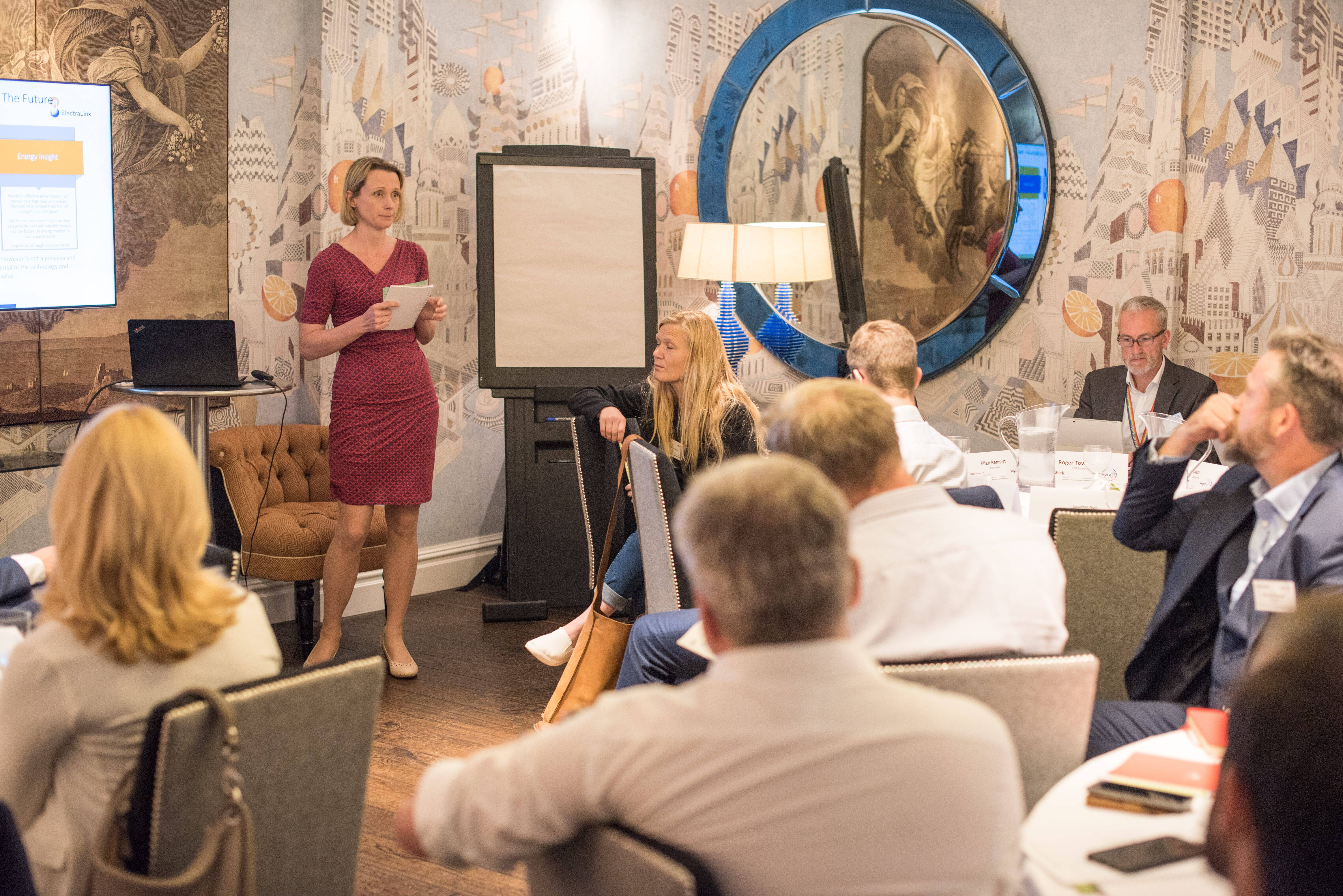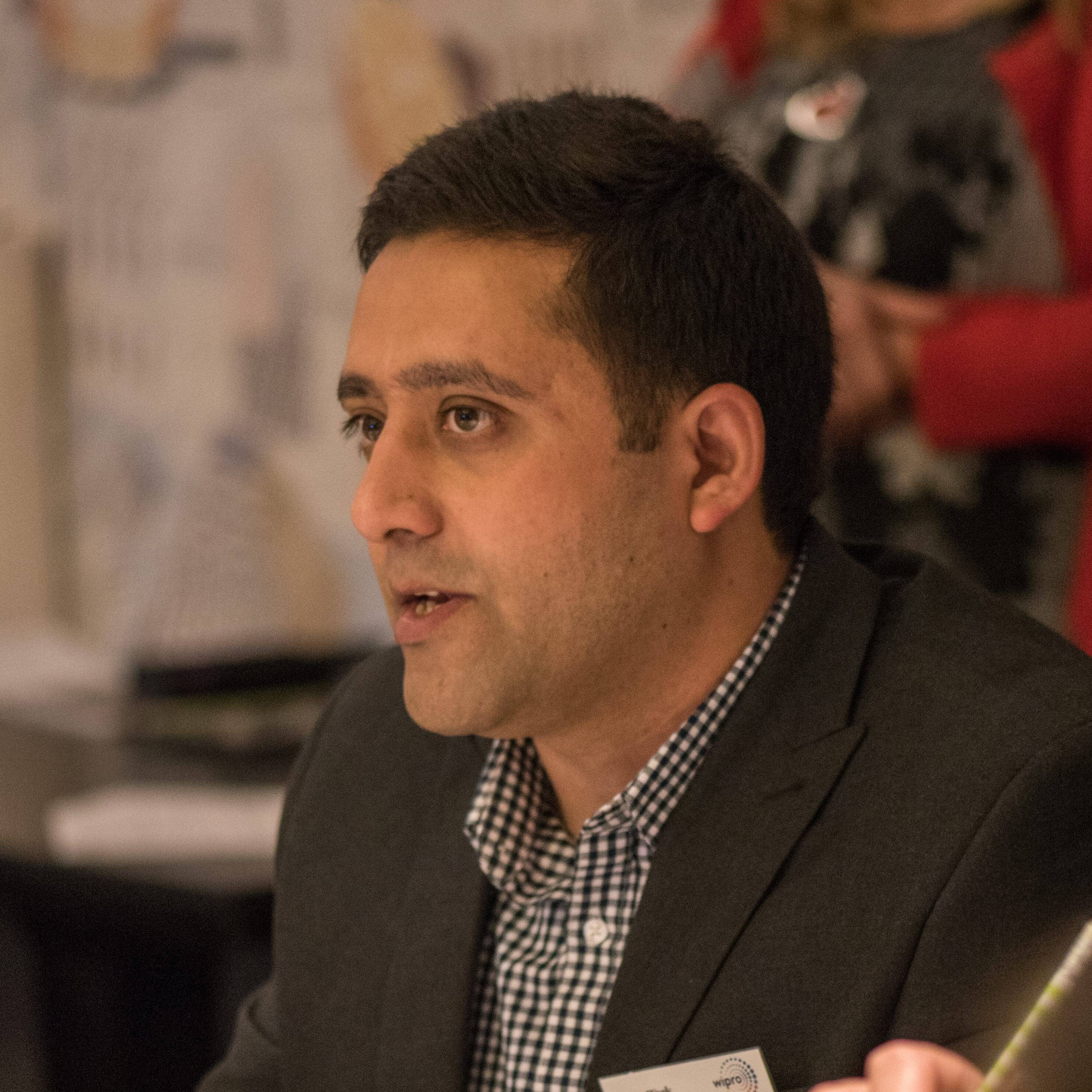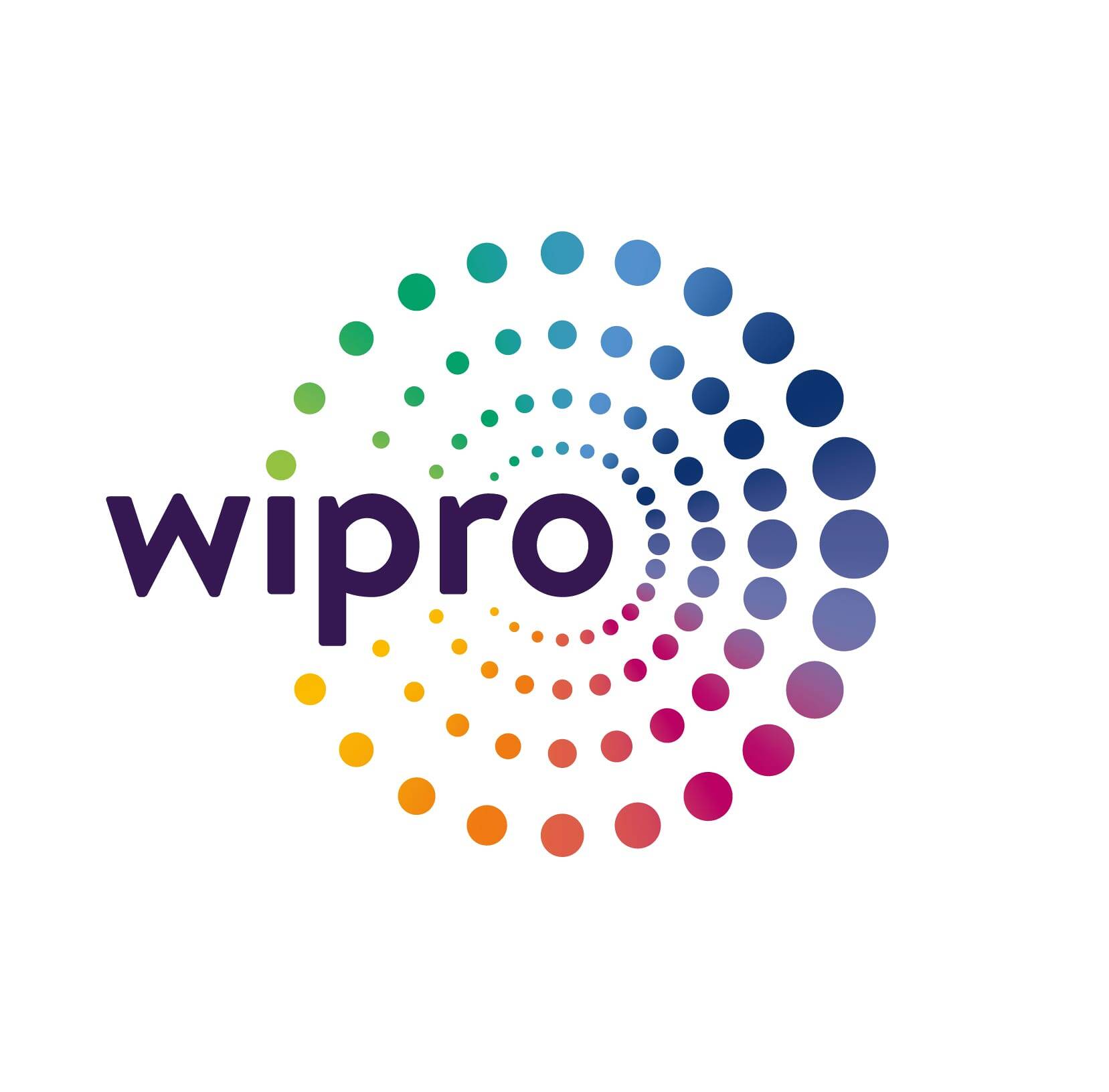This is the Sponsored paywall logged out
Monday 18 June 2018 - Soho Hotel, London

You don’t need to know the ins and outs of how blockchain works to use it – much like the internet. However, many people still don’t have even a baseline understanding of what blockchain is, which is putting them off trying to adopt this much-talked about technology to benefit their business. This was one of the conclusions to come out of a workshop held in London by the Utility Week-Wipro Technology and Innovation Council.
Blockchain – the technology underpinning digital currencies like Bitcoin – has been grabbing the headlines because of its potential to transform financial transactions. It’s embryonic, but a few utility companies and their suppliers are waking up to its possibilities as a vehicle for radically changing the way they do business and interact with customers.
Put simply, blockchain is a method of recording data – a digital ledger of transactions, agreements and contracts. The big difference is that this ledger isn’t stored in one place, it’s distributed across several, hundreds or even thousands of computers around the world.
At the seminar concerns were raised that a lack of education and the resultant “fear of the unknown” could be putting utility companies off adopting the technology. One participant to the discussion stated that the word “blockchain” is already “stained” by negative media coverage of bitcoin and cryptocurrency, which are “often found in the crime section of the newspapers”. This, in turn, has caused public perception based on false assumptions.
The session, titled “understanding blockchain for utilities”, sought to help companies gain a better understanding of blockchain and hear about how some companies are adopting the technology. The day began with a series of presentations from industry experts, before attendees split into three groups to think about the potential applications of blockchain to their current operations.
Digital ledger
Kicking off the presentations, Wipro lead consultant Muneeb Iqbal Shah pointed out that blockchain itself is not a new technology, and has been around for two decades or more, all be it in a nascent form. “We have to be very careful not to confuse blockchain with bitcoin or cryptocurrency,” he warned. Blockchain is a digital ledger in which transactions made in bitcoin or another cryptocurrency are recorded chronologically and publicly.
Attendees agreed that educating decisionmakers is vital if utility companies are to exploit the benefits of the technology, of which there are many. The views of the room chimed with that of a recent piece of research carried out by Utility Week and Wipro. The survey asked respondents to rate, on a scale from 1 to 5 the extent to different technologies and innovations will transform their business over the next ten years. 39 per cent scored blockchain 4-5 – “very transformative”, and 39 per cent scored it 3. A full report of results will be published by the Council in the autumn.
One attendee to the workshop suggested blockchain was unlikely to be rolled out any time soon, because of the governance issues and the changes to regulation which would be needed to facilitate its rollout. But despite a consensus in the room that blockchain will likely not reach the mainstream for another 5-6 years at least, there are markets which could benefit from the technology sooner, such as the nascent non-household water retail market.
MOSL’s digital strategy committee chair Nick Rutherford claimed in his presentation that blockchain has the potential to revolutionise this market, which opened to competition in April last year.
Bringing benefits
Blockchain would streamline processes such as new connections and customer switching and settlement – which are currently laborious and “admin-heavy”. By cutting out certain parts of these processes, the use of blockchain – a digitised, decentralised, public ledger of all cryptocurrency transactions – could make them instantaneous, Rutherford suggested. Currently, the settlement process can take anywhere between 30 and 60 days.
He insisted the water retail market is ripe for the take-up of the technology, as it is “centralised and new”. “We’re heavily reliant on asset and meter read information, which is shared across multiple stakeholders across the industry,” he said, adding: “We’re a small market which is simple in comparison to the energy sector – there are only retailers and wholesalers in our marketplace. But also, we’re going to grow, both in terms of functionality, but also in terms of demographics, so as and when domestic competition into the water sector, that’s going to increase our footfall from 1 million customers to maybe 60 million customers.”
The general feeling in the room was one of optimism about the benefits blockchain can bring. Although it may not reach mainstream use for another 4-6 years, delegates at the workshop concluded, there are some markets which look set to benefit from the technology much sooner.
At a time when energy is becoming more decentralised and consumers of energy and water are becoming “prosumers”, utility companies are being forced move to a more customer-focussed and digital mindset. Blockchain can aid that transformation, but first utilities decisionmakers must be educated about what blockchain is, to avoid them being put off by the negative connotations of the technology in the mainstream consciousness.
Key takeaways
- Blockchain has huge potential to transform the way utility companies work, but decisionmakers are often put off by the negative perception of the technology, fuelled by the media.
- Blockchain is different from cryptocurrency and bitcoin, but is often thrown into the same
- Blockchain will not hit the mainstream for another 5-6 years, but there are markets, such as water retail, which are set to benefit much sooner.
- Blockchain can be used to dramatically improve systems and processes and, therefore, transform customer service.
- In an age of decentralised systems and the shift from consumers to “prosumers”, blockchain will be vital in helping companies adapt.
Views from the room
Ana Trbovich, foundation council member, Energy Web Foundation and chief operating officer, Grid Singularity
 “Regulators, when they learn about blockchain, love it. They realise that they will be able to observe the market automatically, and may even become a validating node in the future.”
“Regulators, when they learn about blockchain, love it. They realise that they will be able to observe the market automatically, and may even become a validating node in the future.”
Nick Rutherford, digital strategy committee chair, MOSL
 “We think there’s an opportunity with blockchain to bring other actors into the marketplace. Maybe we could bring in some debt management organisations to procure debt as part of the switching process.”
“We think there’s an opportunity with blockchain to bring other actors into the marketplace. Maybe we could bring in some debt management organisations to procure debt as part of the switching process.”
Muneeb Iqbal Shah, lead consultant, Wipro
 “Most of our customers are looking at blockchain because somebody else is looking at it. There is this competitive pressure in terms of being abreast with what’s new in the market.”
“Most of our customers are looking at blockchain because somebody else is looking at it. There is this competitive pressure in terms of being abreast with what’s new in the market.”
James McDonagh, technical architect, Electralink
 “A number of our senior management team see blockchain as an existential threat. I don’t see it as an existential threat, I see it as the next level of technology.”
“A number of our senior management team see blockchain as an existential threat. I don’t see it as an existential threat, I see it as the next level of technology.”
Neil Pennington, advisory board member, ID2020 Summit
 “The biggest risk to full scale adoption will be interoperability; companies working in silos, building chains that do not work together to allow full participation from all customers in the energy market.”
“The biggest risk to full scale adoption will be interoperability; companies working in silos, building chains that do not work together to allow full participation from all customers in the energy market.”
You can read more about how Energy Web Foundation, Electron and Verv are developing blockchain for their business in this in-depth report for Utility Week members.
The Utility Week-Wipro Technology and Innovation Council is a forum for networking and ideas-sharing. It meets for face-to-face debates and workshops and approves the focus for bespoke research.
For 2018, the council’s research project is exploring innovation and technology adoption strategies in UK utilities, with questions focusing on three themes:
- Innovation leadership and investment
- Innovation culture and process
- Technology strategy
The report will be published by the council in full in the autumn.

Please login or Register to leave a comment.